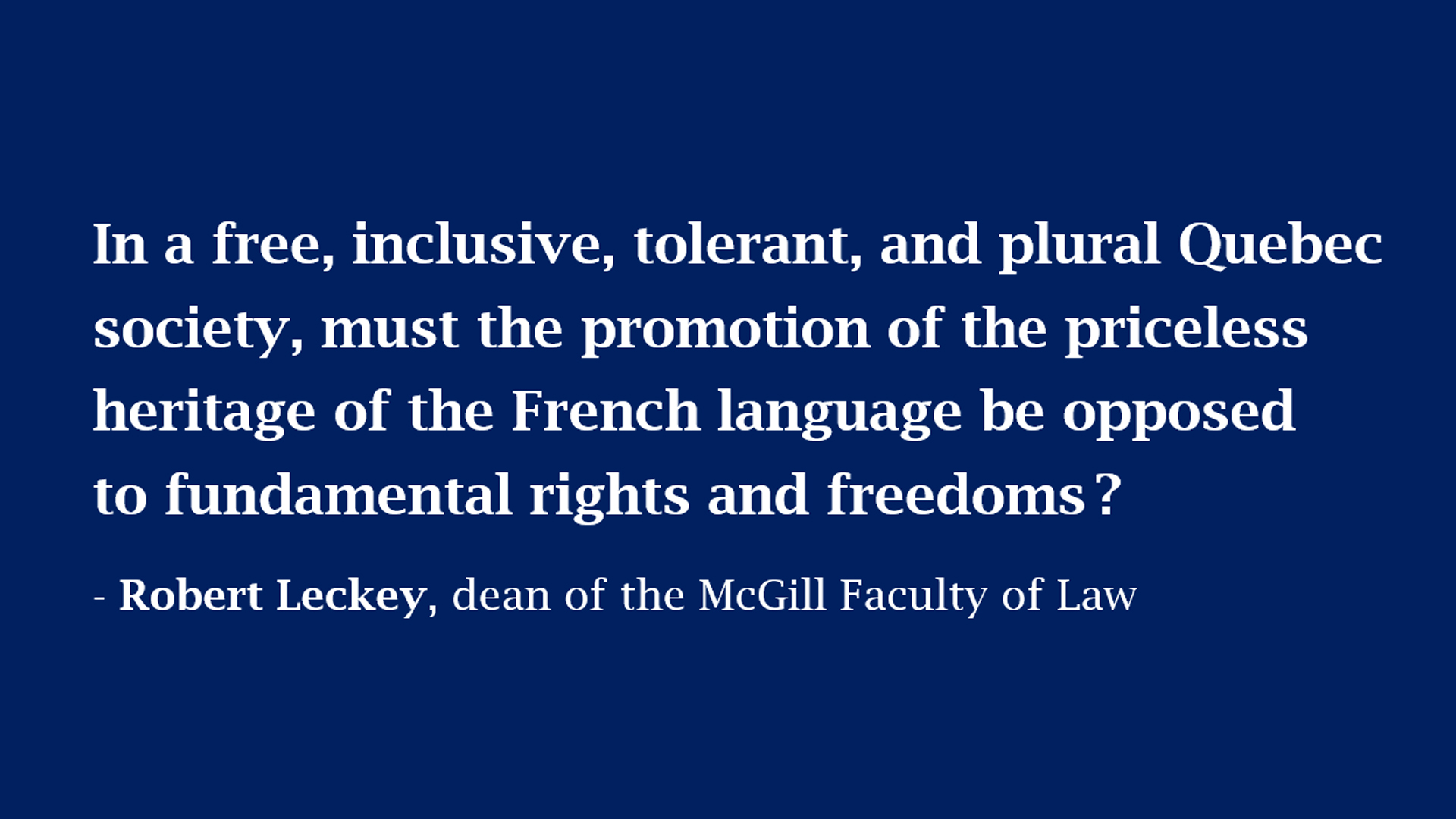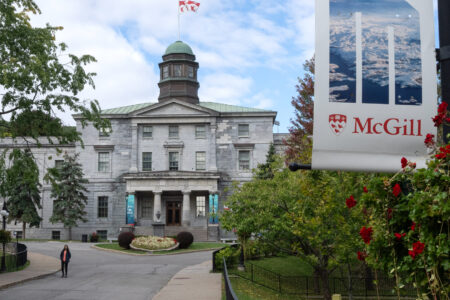
(Version française disponible ici.)
The summer recess and Quebec’s general election are coming up fast and the Legault government is in a hurry to adopt its Bill 96, An Act respecting French, the official and common language of Québec. This reform, aiming to protect and promote French, has many pieces and it’s plain that public debate has overlooked some of them. The bill’s impact on public services for new arrivals and on the English-language CÉGEPs has been discussed. In contrast, I shall focus on the worrisome effects of Bill 96 on the administration of justice and our fundamental rights and freedoms.
Judicial bilingualism under threat
First, the bilingual operation of the province’s court system is threatened. Section 133 of the Constitution Act, 1867 allows using English and French in Quebec courts. Moreover, section 530 of the Criminal Code guarantees each accused person the right to be tried by a judge who speaks the accused’s chosen official language. While in Quebec this guarantee benefits anglophones, in the rest of Canada it benefits francophones.
The upshot is that it’s necessary to have numerous bilingual judges, with the linguistic needs varying from one judicial district to another. At present, the chief justice of the Court of Quebec assesses the linguistic needs of each district, deciding where judicial candidates must be bilingual to respect the constitutional requirements. Preceding governments, both Péquiste and Liberal, accepted this arrangement.
But Bill 96 as recently amended will upend this process. Under the amendments, knowledge of a language other than the official language of Quebec, French, cannot normally be relevant in the selection process for judicial candidates. It can be relevant only if the justice minister so decides after consulting the minister of the French language – who is currently the same person – and after all reasonable means have been taken to avoid requiring bilingualism on candidates’ part. The assessment of the chief justice – who knows the needs on the ground better than anyone else – is excluded. This change will predictably reduce the courts’ capacity to respect individuals’ constitutional rights.
Might this reduction in the powers of the chief justice in this regard infringe the constitutional principle of judicial independence? The question arises because this principle includes a dimension of institutional independence, which protects the judiciary from political interference.
As for the administration of justice, the new law will require French translations of pleadings drafted in English. Furthermore, numerous judgments drafted in English will not be rendered until the French translation of them is ready. The cost increase, administrative heaviness and longer lead times are obvious. And Quebec already struggles to satisfactorily provide access to justice in English, as a result of inadequate governmental investment in legal translation.
When the defence of French attacks fundamental rights
In addition, Bill 96 activates the notwithstanding clauses of the Canadian Charter of Rights and Freedoms and the Charter of Human Rights and Freedoms, better known as the Quebec Charter. The government has reprised its sweeping, pre-emptive use of the notwithstanding clauses from its Law 21, An Act respecting the laicity of the State, a usage characterized by Justice Blanchard in the Hak judgment as “careless and indiscriminate.”
The government thus signals that the defense of the French language isn’t a social aim that is compatible with fundamental rights.
On the contrary, the promotion of French is antagonistic to them. As for the safeguarding of fundamental rights by our independent courts, it’s an impediment to the pursuit of majoritarian will.
For example, thanks to the notwithstanding clauses, any investigation by the government regarding businesses’ respect of their language obligations can take place notwithstanding the right of everyone, entrenched in the two charters, to be free from unreasonable search and seizure.
The need to protect and promote French in Quebec – as valuable as it is – isn’t temporary. Nor is the remedy that Bill 96 is setting up. This intended permanence of the new regime makes its opposition to our fundamental rights all the more worrisome.
In a free, inclusive, tolerant, and plural Quebec society, must the promotion of the priceless heritage of the French language be opposed to fundamental rights and freedoms? For decades, the Quebec Charter – the creation of the National Assembly, and the embodiment of fundamental guarantees of international law – was cherished as the hallmark of a free and liberal Quebec society. Has our government forgotten?









